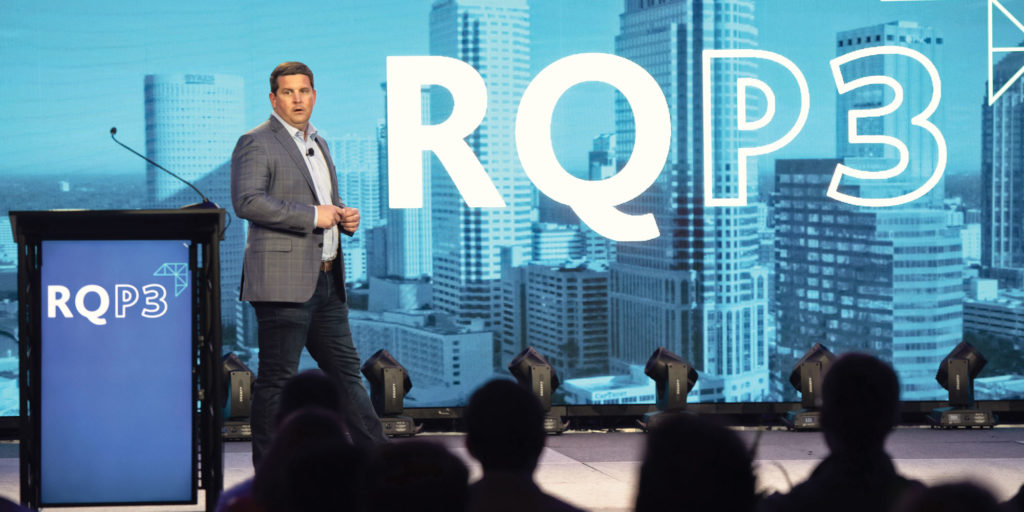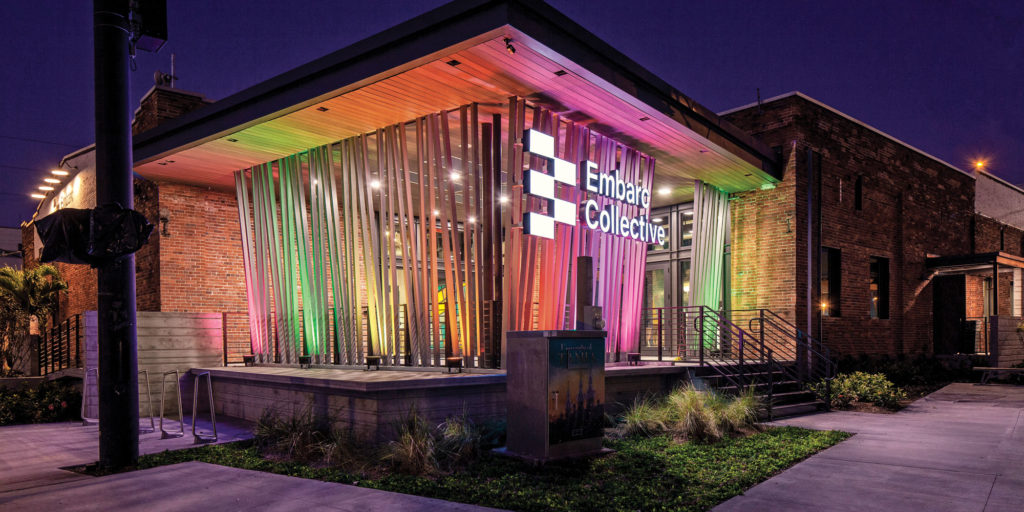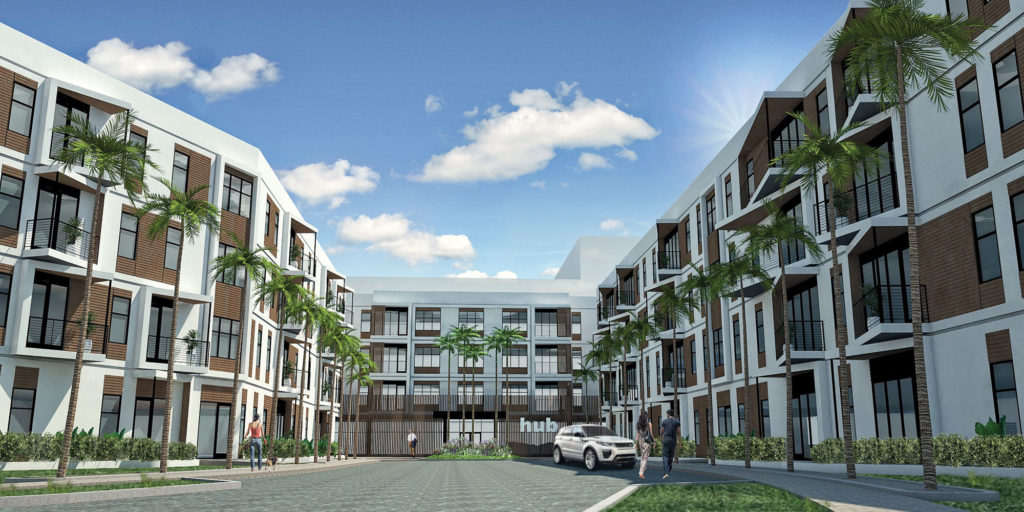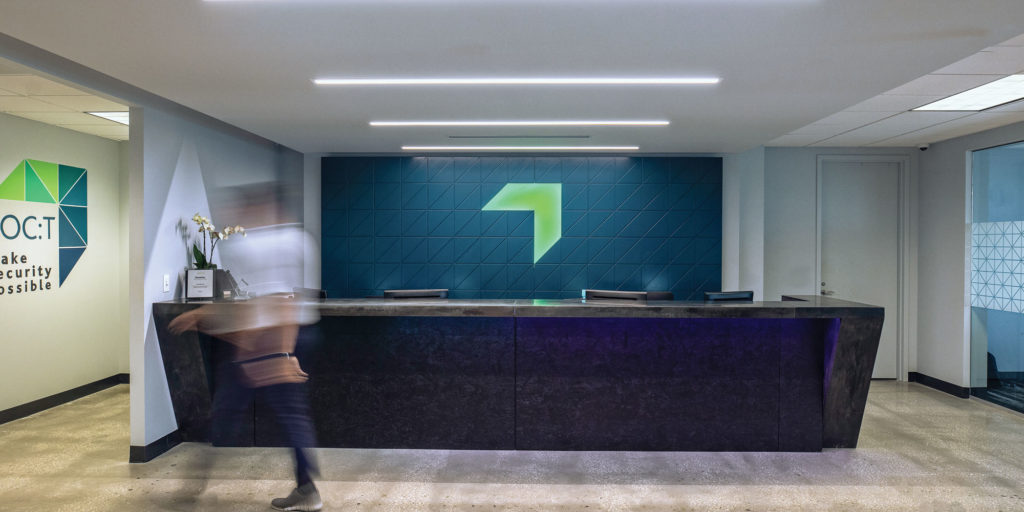When Forbes named Tampa the No. 1 Emerging Tech City in the U.S. in August, locals nodded in agreement. But people across the country raised an eyebrow and leaned in to learn more.
Champa Bay’s technology scene has been exploding for the past several years under the radar, mainly by word of mouth. Now, the word is getting amplified on the national stage, and the city couldn’t be more excited.
“I am incredibly proud, but not surprised,” Mayor Jane Castor says of Forbes’ ranking. “Tampa is soaring to new heights.”
Tampa has been a benefactor of the new tech migration. With technology at the forefront of today’s society and the COVID-19 pandemic shifting more workers remote, companies are seeking out attractive new cities like Tampa in which to stake their flags.
Where better than Tampa? Its enviable weather, low state taxes, reasonable cost of living, winning sports teams and proximity to the airport and beaches would make nearly anyone want to move here.
Add in a progressive local government, welcoming tech community, ample resources and talent, and strong universities, and it’s no wonder Tampa has become such a tech magnet.
“It’s a great recipe to support tech companies,” Castor concludes.
Forbes says Tampa could shape up to be the next Silicon Valley, with Tampa ranking higher on Forbes’ list than Miami, New York City, Austin, Texas, and San Francisco, which respectively placed second through fifth.
“Tampa is quickly turning into Florida’s tech capital,” Forbes’ article states. “Tampa’s positioned to become one of the tech capitals of the American South in the coming decade.”
After all, Tampa is home to over 50 software and IT companies and is responsible for over 25% of Florida’s tech jobs, with another 2,000 jobs anticipated to be added this year. A dozen Tampa founders have made Forbes’ first-ever 1,000 to Watch list.
Plus, high-profile investors include Microsoft founder Bill Gates and Tampa Bay Lightning owner Jeff Vinik, who are putting $3.5 billion toward tech-focused real estate with Water Street Tampa, the 56-acre mixed- use downtown redevelopment project.

Major Movers And Shakers
Tampa has recently attracted an impressive list of startups, tech companies and executives. Within the past year alone, many companies announced plans to relocate to or expand in Tampa, including ReliaQuest, Celsius Network, International Data Corp, OPSWAT, Genesis Systems, Pfizer and Fisher Investments.
From Silicon Valley, Tampa welcomed JetBridge, TrustLayer, and founders and executives from notable companies such as Instagram, Snapchat, Wag! and HelloFresh.
Cryptocurrency platform Celsius moved from New York in May and has already elevated Tampa’s crypto visibility by announcing plans for the first Florida Bitcoin and Blockchain Summit on Nov. 4-5 at Amalie Arena.
Cybersecurity leader ReliaQuest was ahead of its time, launching in 2007 in Tampa to manage security programs for some of the world’s largest Fortune 1000 companies. It announced plans in August to relocate its headquarters to Water Street Tampa due to expansion.
“I used to always get asked for years, ‘You’re headquartered where? Tampa? Why?’” ReliaQuest founder and CEO Brian Murphy says. “Now, they’re like, ‘You guys were really ahead of the curve. You called that trend.’”
Murphy has lived in Tampa since 2001 and reflected on the city’s growth.
“It’s been a drastic change,” Murphy says. “Then, there weren’t resources available or models you could follow to grow a tech company. There wasn’t a place you could pull into the parking lot and know you had that talent there. Today, there’s a welcoming committee. You have a groundswell of support wherever you go in the community.”
In true Tampa fashion, Murphy met tech newcomer Domm Holland at a Tampa Bay Lightning game at Amalie Arena and extended a warm welcome.
Holland is the co-founder and CEO of Fast, the world’s fastest online login and checkout platform, which started in San Francisco. In August, Holland announced plans to open an East Coast hub.
“The relocation of Fast to the Tampa Bay area was such an important step forward in the building of our tech portfolio,” Mayor Castor says. “We are talking about hundreds of high-paying, skilled jobs being brought to our city.”
Tampa crossed Holland’s radar last year when the city hosted the Super Bowl. He later visited, fell in love with the area and made the move.
“It’s probably 10 times better than we thought it would be,” Holland says. “It’s a great hunting ground for recruitment and a great investment opportunity, as well. There’s a lot of momentum.”

A Supportive Ecosystem
Support for tech has been woven into the fabric of Tampa.
“The leaders of this community make sure that they have their doors open to newcomers,” Castor says. “That starts with me and my administration and branches out to other CEOs, leaders of nonprofits, the Tampa Economic Development Council and more.”
Capital is key to startups’ success, and it is within reach locally from Florida Funders, Tampa Bay Ventures and Seedfunders, among others.
Also, standing ready at the helm are several nonprofits solely focused on fostering tech startups, such as Embarc Collective, Tampa Bay Tech and Tampa Bay Wave.
Embarc Collective launched in 2019, while Tampa Bay Tech has c. been serving for 21 years, and Tampa Bay Wave, over 10 years. Embarc Collective is the state’s fastest-growing startup hub. It began with 25 member companies and quadrupled to 100 this fall, raising $107 million in venture capital along the way.
Jeff Vinik founded the organization to move Tampa’s tech community forward. He recruited CEO Lakshmi Shenoy from Chicago’s 1871, the country’s largest startup hub.
“This is a very welcoming community that loves having people join the vision of helping us actualize their potential,” Shenoy says. “When I came down here, it was just an energy you could feel. It was just buzzing. The transparency and willingness to collaborate was really, really notable and something I don’t see in other communities — and I don’t know a tech community I haven’t been to.”
Embarc leverages the insights of successful tech company founders such as Holland and Murphy to serve as role models and mentors.
“This doesn’t work without people like them who are inspiring, guiding and supporting the next generation of founders,” Shenoy says.
Murphy, who also serves as Embarc’s board chair, shares his ambitious vision for Tampa’s tech future.
“We’ve come so far, but we have a long way to go,” he says.
Murphy believes that companies need to scale their employees into the thousands and go public to elevate the city’s tech scene to the next level.
“The crops have been planted and there’s a lot of growth going on right now,” Murphy says. “We will continue to catch the eye of the world as we get to those bigger numbers.”
Mayor Castor is confident the city will continue to make strides.
“We feel the future for tech in Tampa is strong,” she says.
In September, Embarc helped launch a new initiative, HiTampaBay.com, to attract and retain national tech talent. The welcoming committee is backed by a coaltion of local and state businesses, government agencies and nonprofits.

Building An Innovation District
In a significant project commonly referred to as Tampa’s Uptown, about 19 square miles surrounding the University of South Tampa (USF) are being planned as an innovation district by the Tampa Innovation Partnership (!p).
!p was established in 2011 and has grown to 230-plus members. Its focus is within the area of Busch Boulevard, Bearss Avenue and interstates 75 and 275, with 25,000 acres in Tampa, along with parts of Temple Terrace and unincorporated Hillsborough County.
Technology, health care, education and entertainment are the priorities, with an estimated $11.3 billion in annual potential economic impact.
Currently, there are 74,000 jobs and 4,100 companies in the district. Mark Sharpe has helped lead the way, first as a Hillsborough County commissioner and since 2015 as !p’s executive director.
“We began to have a serious conversation about how we can partner to transform the area,” Sharpe says. “We’re speaking about building the metaverse.”
!p collaborated with USF, Moffitt Cancer Center, Busch Gardens, AdventHealth, the James A. Haley Veterans’ Hospital, the University Mall, the University Area Community Development Corporation and others.
Yuengling brewery has become an important member at the front end of a $65-million redevelopment project, creating a massive entertainment complex on its property that could open in fall 2022.
Under !p Executive Board Chairman Chris Bowen’s leadership, RD Management is turning the former University Mall into a 100-acre innovation hub, RITHM@Uptown.
RITHM is poised to become one of the largest mixed-use innovation communities in the state. It plans to span over 7 million square feet of development, including life sciences and technology research institutes and complexes, major residential components and retail.

Diamond View Studios is one of RITHM’s tenants, building a 35,000-square-foot campus to include one of the world’s largest extended reality TV and film studios, called Vu, as well as a training facility.
Another tenant, the USF Institute of Applied Engineering, is under a multi-year contract with the U.S. Special Operations Command worth $85 million for applied research and advanced technology development.
In another USF partnership, healthcare system startup Edgility announced in August its contract with the College of Engineering, giving students experience and Edgility access to new talent. Earlier, Edgility teamed up with the College of Nursing to launch a digital incubator program.
“We’re part of a much larger ecosystem and we want to connect in and help the university area connect to all these other exciting developments taking place all over Tampa Bay,” Sharpe says. “For the very first time, I’m seeing Tampa at the front end of cutting-edge industries attracting a lot of talent.”
Indeed, Tampa is proving itself to be Florida’s tech capital.



